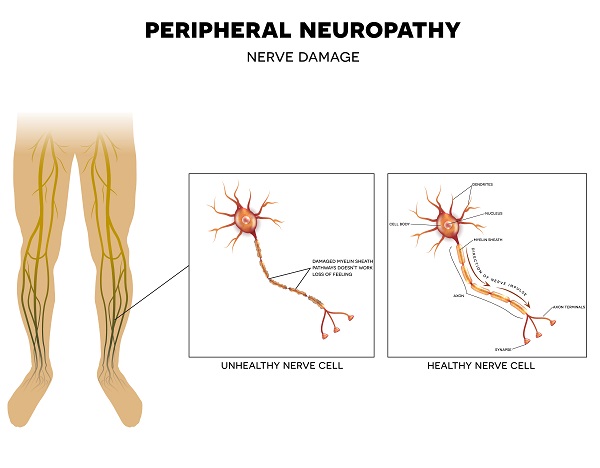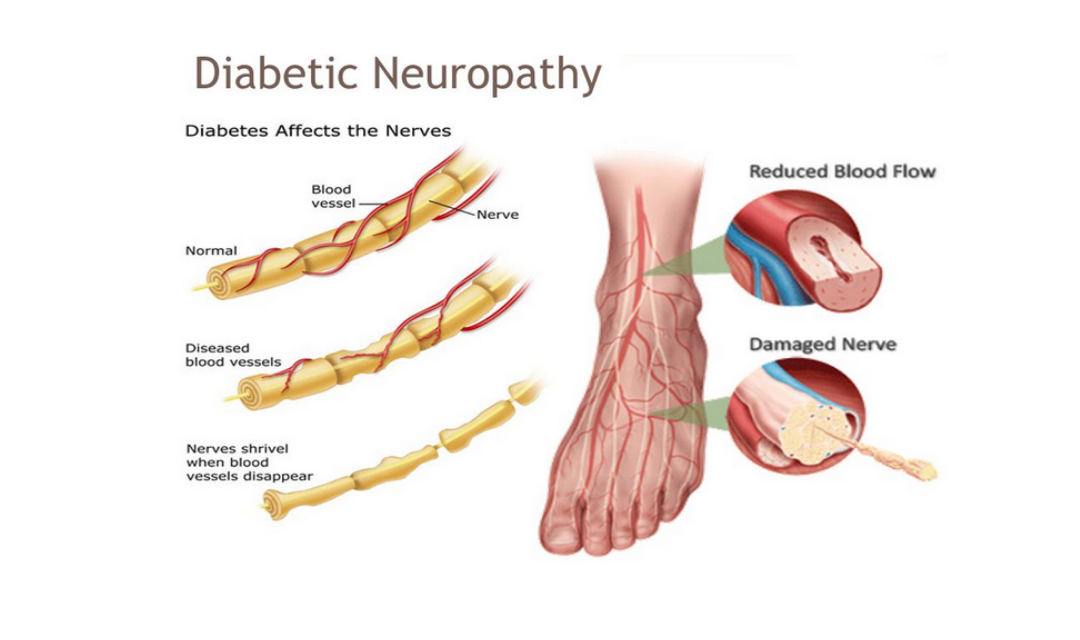Peripheral neuropathy can manifest with a variety of symptoms, which can range from mild to severe and may differ depending on the underlying cause. Common symptoms of peripheral neuropathy include:
1. Numbness and Tingling: Many people with peripheral neuropathy experience sensations of numbness, tingling, or a “pins and needles” feeling, often in the hands or feet. This can extend to other parts of the body as well.
2. Burning or Electric Shock Sensations: Some individuals describe a burning or electric shock-like pain that can be intermittent or constant. This pain is often felt in the extremities.
3. Sharp or Shooting Pain: Peripheral neuropathy can cause sharp, stabbing, or shooting pains, which can be sudden and severe. These pains may come and go.
4. Loss of Sensation: A common symptom is a loss of sensation, where individuals may have difficulty feeling temperature changes, pain, or touch. This can lead to unintentional injuries.
5. Muscle Weakness: Weakness in the muscles, particularly in the hands or feet, can occur. This may result in difficulty with tasks that require fine motor skills, such as buttoning clothes or gripping objects.
6. Difficulty with Balance and Coordination: Some people with peripheral neuropathy experience problems with balance and coordination, which can increase the risk of falls.
7. Sensitivity to Touch: In some cases, there may be heightened sensitivity to touch, where even light pressure or clothing can cause discomfort or pain.
8. Muscle Cramps or Twitching: Muscle cramps and twitching can be associated with peripheral neuropathy, particularly when nerves that control muscle function are affected.
9. Changes in Skin, Hair, and Nails: The condition can lead to changes in the skin, hair, and nails, such as dry skin, hair loss, or brittle nails.
10. Autonomic Symptoms: In certain types of peripheral neuropathy, individuals may experience symptoms related to the autonomic nervous system, such as changes in blood pressure, heart rate, or digestive problems.
It’s important to note that the specific symptoms experienced can vary depending on the type and location of nerve damage and the underlying cause of peripheral neuropathy. If you or someone you know is experiencing these symptoms, it’s crucial to seek medical attention for a proper diagnosis and to determine the underlying cause, as treatment options and prognosis can vary accordingly.
Once a diagnosis is established, treatment can be tailored to manage symptoms, slow progression, and address the underlying condition if possible. It’s essential to consult with Dr. Amit Shah, a healthcare professional or Neurologist in Mumbai practising at Dr. Amit Shah Neurology Clinic for a proper diagnosis and individualised care.




